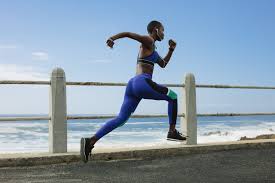Enhancing your running with Myotherapy
Myotherapy, a form of physical therapy focused on the assessment, treatment, and management of musculoskeletal pain and dysfunction, can be highly beneficial for runners. Here’s how a myotherapist can support a runner:
1. Injury Prevention
One of the primary roles of a myotherapist is to help prevent injuries. For runners, this involves:
• Muscle Assessment and Balancing: Identifying and addressing muscle imbalances, weaknesses, and tightness that can lead to common running injuries such as IT band syndrome, plantar fasciitis, and shin splints.
• Customised Stretching and Strengthening Programs: Developing personalised programs to enhance flexibility and strength, focusing on key muscle groups involved in running.
• Postural and Gait Analysis: Evaluating running posture and gait to identify any irregularities that might predispose the runner to injuries and providing corrective exercises.
2. Treatment of Acute and Chronic Injuries
When injuries do occur, Myotherapists use various techniques to aid recovery:
• Soft Tissue Therapy: Utilising massage and manual therapy techniques to relieve muscle tension, reduce inflammation, and promote healing.
• Trigger Point Therapy: Identifying and treating trigger points (knots in muscles) that can cause referred pain and muscular dysfunction.
• Dry Needling: Using fine needles to release muscle tightness and improve blood flow to the affected area.
• Joint Mobilisation: Restoring normal movement to joints that may be restricted due to injury or muscle tightness.
3. Pain Management
Myotherapist’s are skilled in managing pain through:
• Myofascial Release: A technique that involves applying sustained pressure to the myofascial connective tissue to alleviate pain and restore motion.
• Electrotherapy: Using modalities such as TENS (Transcutaneous Electrical Nerve Stimulation) to reduce pain and muscle spasm.
• Education on Pain Management Techniques: Teaching runners about proper pain management strategies, including the use of ice, heat, and self-massage tools.
4. Performance Enhancement
By optimising the musculoskeletal system, Myotherapists can help runners improve their performance:
• Enhanced Flexibility and Range of Motion: Regular myotherapy sessions can increase muscle flexibility and joint range of motion, contributing to more efficient running mechanics.
• Improved Muscle Function: Addressing muscle imbalances and weaknesses can lead to stronger, more resilient muscles, reducing fatigue and enhancing endurance.
• Faster Recovery: Techniques such as massage and dry needling can help speed up recovery times between training sessions and races.
5. Education and Advice
A myotherapist can provide valuable education and advice on:
• Running Technique: Offering tips on proper running form to reduce stress on the body.
• Training Load Management: Advising on how to balance training intensity and volume to avoid overuse injuries.
• Nutrition and Hydration: Providing guidance on nutritional strategies to support muscle function and recovery.
6. Holistic Approach
Myotherapist’s often take a holistic approach to treatment, considering factors such as:
• Stress Management: Addressing how psychological stress can impact muscle tension and performance.
• Sleep and Recovery: Emphasising the importance of adequate sleep and recovery practices to maintain optimal physical condition.
Conclusion
Myotherapist’s play a crucial role in supporting runners by preventing injuries, managing pain, treating both acute and chronic conditions, enhancing performance, and providing education on various aspects of running health.
By integrating myotherapy into their routine, runners can not only stay injury-free but also improve their overall running efficiency and performance




